|
BLAST FROM THE PAST WITH ANGELO BISSESSARSINGH
The following is a riches to rags story written by Angelo Bissessarsingh in 2010 Leon Toussaint de Rostang was once known in Trinidad as a large landed proprietor and a man well to do in the world but died penniless. This is his story . Leon Toussaint de Rostang was born in Trinidad on December 15 1795. His baptismal record shows that he was the son of Maurice Rostant (sic) and Magarita Lux Desbourdes. His father died in 1800 and his mother remarried and Leon was educated in France. He married Marie Louise D’Angleberne in 1817 and set up developing sugar estates in the Couva area. At one point, he owned almost all the estates in the district, particularly Caracas, Phoenix Park, Savonetta, Exchange, Camden, Edinburgh and Petersfield. On June 1st 1853 Leon was made a member of the Legislative Council which hitherto had been dominated by English expatriates and frowned on the Catholic French Creoles. In the1850s a series of misfortunes and the low price of sugar spelled disaster for Leon who mortgaged his estates heavily to Hypolite Borde, Andre Blasini and the Colonial Bank. Matters were made even worse as the Colonial Bank employed Attorney General Chas. William Warner, the great enemy of the French Creoles, as its attorney. Despite attempts by Borde and the wealthy Lucien Ambard to intervene and reestablish credit, Warner pressed for foreclosure. Leon, staring destitution, fled Trinidad in the dead of night with his wife, sons Maurice and Phillippe and their families with $10,000 to live in exile and depression in Venezuela for five years. The family moved thence to Puerto Rico (where his wife died) and in 1866 landed in Dominica where Maurice was employed as manager of a sugar estate. With the removal of Chas. William Warner as Attorney General in 1870, the family returned to Trinidad where Maurice became manager of Williamsville Estate. Leon Toussaint died in San Fernando on June 17 1877 and was buried in Paradise Cemetery, San fernando. The following excerpt is from the San Fernando Gazette on his death : “ Mr. Toussaint Rostant died at the residence of his eldest son, Mr. Maurice Rostant at the advanced age of 83. Once known as a large landed proprietor and a man well to do in the world, he died penniless. French blood and English energy created that mixture of kindheartedness and stern resolve which distinguished most of the planters who opened up our virgin forests and pushed civilization into the heart of the island. The Quarter of Couva where his name is still venerated, may be said was his creation . This wonderful research may be read along with other gems of our French heritage in Fr. Anthony DeVerteuil’s excellent book, Trinidad’s French Legacy." This photo shows Leon Toussaint’s grave in Paradise Cemetery. The headstone which bore his French epitaph has since disappeared.
0 Comments
SEVENTEEN-YEAR-OLD Stefan Stuven will represent Trinidad and Tobago for the first time at the Youth Sailing World Championships in Mussanah Sports City, Oman, from December 11-18.
Stuven will compete in the men’s laser radial class. He was invited to participate as part of World Sailing’s Emerging Nations Programme (ENP). The ENP aims to increase the number of sailors and member nation assemblies participating at the Youth Worlds, with a goal to narrow the performance gap and promote worldwide competition. Stuven, alongside a small fleet of five other TT sailors, is currently being coached by TT’s three-time Olympic sailor Andrew Lewis twice per week. He has, however, opted to do additional training sessions by himself to ensure he stays in good form. Initially, the ENP offers elite training by specialist coaches to potential sailors through an intense, hands-on five-day clinic. Young sailors are usually flown out to sailing locations and taught the fundamentals and advanced techniques by the sport’s top-flight coaches. Owing to the pandemic, this year’s edition was done virtually and Stuven, alongside a host of young sailors from emerging sailing countries, took part. He was then invited to another edition, this time an in-person session, in Oman from December 10. After working out travel and other logistics with World Sailing, the TT Olympic Committee, TT Sailing Association (TTSA) and his parents, Stuven accepted the offer to go to Oman for the ENP and then make his international competitive debut at Youth Worlds. “I feel quite excited for the experience because I’ve never competed at this level. Because of covid19, World Sailing held their ENP online this time. We had meetings once a month and the coaches would talk and explain the theories of sailing and we would interact and ask questions. “That’s happened for over a few months. Coming to the end of it, the organiser of it asked me if I wanted to come and do an in-person ENP. I thought it was quite far to travel and there were a lot of technical challenges like that to overcome. But it’s been confirmed,” he said. After the session, Stuven heads right into the world regatta. His father Andreas, has always been an avid yachtsman. The St Mary’s College graduate, however, got into sailing at age seven after attending a holiday sailing camp hosted by the TTSA in 2011. Since his introduction, he’s never stopped sailing. Stuven trains in Chaguaramas and previously worked with TTSA head instructor Stephen Phillip. Under his new coach Lewis, he is impressed by the Olympian’s work ethic. “He’s (Lewis) very intense in his training. He trains at a very high level and tries to push everyone in the field. It’s not just me, it’s a fleet of us. He’s trying to get everybody to the highest possible level of training. “He teaches us how to race, how to think tactically, being aware of our surroundings and not thinking only of what’s inside the boat but also outside, looking at the conditions, observing what everybody else is doing on the course and think ahead. “It’s a very good experience to be dealing with a high-level person and three-time Olympian,” he added. Stuven, however, has never competed in laser radial, not even at a national level. He started training for this class just before the pandemic hit in March last year. He said it’s been very hard to train with the fluctuating restrictions and beaches being closed. He was grateful though that the TTSA secured an exemption for him to train at one location. Looking ahead, he said, “I want to continue sailing after Youth Worlds. They’ve already set the date for Youth Worlds 2022 in July and I want to try to go again and maybe either get into college sailing in Canada and obviously the Olympics. “Right now, I’m taking a year off to do some subjects I never took, like A’ Level Chemistry. After I get that, I’d like to go to a university where there’s a proper sailing programme, whether it be at UWI, Canada or even Germany.” For the Youth Sailing World Championships, Mussanah is renowned for its high-quality sailing conditions all year round. During December, temperatures are expected to be around 24°C on average, while the average wind strength is expected to be around 10-17 knots. The 2020 Youth Worlds were scheduled to be held in Salvador, Brazil, in December 2020, but the event was cancelled due to the pandemic. (Source: Newsday, November 1, 2021) Dominic Kalipersad (October 28, 2021)
Trini-Canadian Marci Ien has been appointed a cabinet minister in the Justin Trudeau government. And she is the only Black woman in the cabinet. Ien is now Minister for Women and Gender Equality and Youth. She is expected to play a key role on advising Trudeau on anti-Black racism. The Toronto Centre MP is the daughter of well-known educator Joel Ien and accountant Vilna Ien who migrated to Canada in the 1960s and settled on Ontario Street in Toronto South. He father attended university there, then worked as a teacher, principal, and superintendent in Toronto schools. Ien, who was born on July 29, 1969, in Toronto, told The Caribbean Camera last year, “Sixty years ago, this was the place that they landed in. I was born right here. Canadian yes, but, I had a Trini upbringing. What is happening in the Caribbean has not been lost on me. “Relations between Canada and the Caribbean are different since my parents came here. So, I want to look at the issues (immigration, visas, trade and aid) and bring them with me to Ottawa.” Ien is an award-winning journalist who was elected in a by-election in 2020. In a career spanning 30 years, she won several awards including for a news serial on the underground railroad. She spent 15 years on Canada AM as the first Black woman to co-host a morning show in the country. Before becoming an MP she worked as a mentor with underprivileged youth in Toronto and La Loche in northern Saskatchewan and travelled internationally with Journalists for Human Rights and World Vision. She is a graduate of Ryerson University and returned to the university as a distinguished visiting professor. eaching English to non-native speakers is a vibrant area of employment and research for many native English speakers.
Programmes like JET (The Japan Exchange and Teaching Programme) and the Teaching Assistant Programme in France are the initiatives of the respective governments to open their countries to young, eager persons for temporary employment while allowing them the opportunity to immerse themselves in the language and culture of the country. Oftentimes, however, regardless of the candidates’ level of education, it can be expressly stated that UK and American accents are preferred for instruction, given their wider appeal. Caribbean accents are sometimes viewed with scant regard and even derision, seen as less legitimate than those from Europe and the US. Researcher Anastasia Ramjag has been on the receiving end of such sentiments and has recently embarked on a project to investigate the attitudes towards Caribbean English speakers teaching the language overseas. The certified English teacher, translator and Japanese language instructor at the University of the West Indies’ Centre for Language Learning (CLL), has herself taught and travelled extensively in Japan and was recently awarded a scholarship by the Japanese government to pursue postgraduate studies in linguistics. Ramjag spoke with Loop News about how she plans to apply her combined passion for her country and for her second home, along with her love for foreign language education to create interesting academic research. “I was 22 the first time I stepped foot in Japan,” she said, recalling her stint as a JET shortly after graduating from the Spanish programme at the UWI. “Every time I worked abroad, [staff] would kindly or not-so-kindly ask, ‘Can you adjust your accent?’” Though Ramjag resisted, she was made to teach from a mostly American-based curriculum, which was customary at the school. She said that often, the schools’ preference is that the assistant teachers use an American accent when delivering lessons. The JET Programme is designed more for cultural and linguistic exchange and immersion than it is for forming educators, so many of the selected candidates take up the positions for the experience more than anything else. “A lot of the people who go aren’t teachers,” Ramjag said. “I want to see how that shift into teacher mentality is made, if at all.” The researcher plans to contact new JETs to gain an understanding of how they develop their self-perception as Caribbean instructors overseas and the messaging communicated to them regarding their cultural and linguistic identity. Ramjag aims to use her interests to boost the country’s profile on the academic scene. With the Japanese embassy having a relatively visible local presence through its development projects, scholarship programmes, film and other cultural festivals, Ramjag aims to extend this synergy of Japanese and Trinbagonian collaboration through her research. It was this same visibility that played a role in Ramjag’s desire to apply for the JET Programme after completing her undergraduate degree, and although she ended up working in diplomacy for a number of years, she feels a certain pull toward teaching. She considers her work at the UWI her most satisfying job to date and sees her students as her pride and joy. “I feel like education is my path,” she affirmed. Even after her stint in international relations, Ramjag would always be led back to working with Japan or the Japanese. After completing her master’s in translation in the UK, she began as a Japanese language instructor at the CLL in 2015, before heading back to Japan four years later. The following year, she returned to take up a position at the Japanese Embassy and resumed her teaching at the UWI. “The opportunities kept arising and I just kept saying yes,” she said. “It wasn’t until I started working for the Embassy that I realised Japan was going to be part of my career.” While she is certainly fulfilled by teaching, Ramjag’s curiosity about language learning and developing a deeper understanding of how students learn drew her in as well. “The research aspect was always very interesting,” she said. She was able to satiate her interest in academic research through the UWI’s participation in the annual seminars coordinated by the Central American and Caribbean Network for Japanese Language Teaching. These experiences further stoked Ramjag’s interest in research and led her to realise that she needed to pursue independent projects, which would mean going back to school. Although she is ultimately excited and grateful, Ramjag admitted her misgivings about going back to school in her 30s. “[There were] a lot of mixed feelings,” she said. “Society expects us to settle down.” Due to the pandemic, she can attend classes–which began last month–virtually for now; this is somewhat of a challenge in itself as the lectures run according to Japan time (13 hours ahead), leading her to becoming quite the night owl. Eventually, she intends to join her peers in Japan. For students considering a foreign language path, Ramjag advises them to “ground [themselves] against the naysayers,” and added that foreign language learning brings with it a “higher consciousness,” referring to the capacity for compassion needed in learning to communicate with and understand others. This, she said, is particularly necessary in humanitarian work, an area in which foreign language skills are highly prized. “If you have the language, you have the tools to unite with communities, with other worlds.” Passion for teaching and the Japanese language and culture aside, Ramjag feels deeply called to undertake this work she had embarked on, not only for her own satisfaction, but to add to the body of academic research from Trinidad and Tobago and for the good of her students. “We don’t get enough credit,” she said, “[so] I’m very much looking forward to bringing recognition to our region.” Source: the Loop, Nov 5, 2021 By Michael Baiz, Octob 26, 2021 (Virtual Museum of T&T)
"If they sending Indians to India And Africans back to Africa Well somebody please just tell me Where they sending poor me? I am neither one nor the other Six of one, half a dozen of the other So if they sending all these people back home for true They got to split me in two" - Mighty Dougla. According to Wikipedia, the word 'Dougla' is derived from the Caribbean Hindustani word 'dooagla', meaning 'twoish'. I am not quite sure exactly which island the name originated from, but from what I have read it would seem that Guyana has the largest population of Douglas in the region. In case you were wondering, a Dougla is a person of mixed African and Indian ancestry. The mixing of races is quite common in Trinidad and we frequently boast of being one of the most cosmopolitan countries in the world. Whether we be of pure or mixed racial backgrounds, we pride ourselves as being a Trini (or Trinbagonian), from one melting pot of peoples. I remember returning to Toronto from one of my first summer vacations back home while I was away studying. On leaving the departure lounge at the airport, I went to where the taxis lined up and jumped in the back seat of one to get a lift to where I was staying at the time. After a few minutes of friendly chatter with the driver, he adjusted his rear view mirror and on seeing me he remarked in astonishment " but you're white!!!". I replied " yeah, I was born so". Poor fella, he never came across a fair skinned passenger talking like a Jamaican (in Toronto, all Caribbean people are lumped together and thought to be Jamaicans). After a bit of explanation on my part, I proudly told him that "I is ah Trini". He was amused at how I spoke and showed a genuine interest in learning more about where I came from and the culture of the people. On arriving at my apartment building on Eglinton Avenue, he asked about the ethnicity of the people to which I replied, "Boi, we is ah real callaloo people yes!". I don't think he had the faintest idea of what I meant and there was no internet for him to Google it either. Throughout my schooling in Canada, I always had to be mindful of how I spoke as my colloquialisms had a habit of sneaking into the Queen's English. Callaloo is a tasty dish made up of a mixture of various ingredients, much like our racial mix in T&T). When Noel Durity appeared on the Shark Tank in 2019, he danced his way into the pockets of billionaire investors Mark Cuban and Daymond John.
The "sharks", while amused with Durity’s moves, realised his invention, the Twist It Up comb, was no laughing matter. With their joint investment of US$225,000 in Durity’s invention, the billionaire businessmen, together with the young entrepreneur, are cornering the lucrative market for black natural hair. The Twist It Up Comb is designed to create twists on natural hair similar to the popular sponges. Shaped like a miniature tennis racket, the comb fits snugly in your hand, is portable, and, most importantly, easy to clean. Durity, who was born in San Fernando, Trinidad, and migrated to the United States at the age of five, told Loop News that Twist It Up was born out of necessity. Durity, thanks to his cousin’s suggestion, used a tennis racket to twist his hair. He tried using a curl sponge but had to throw it away every 10 days. “I was doing real estate and mortgages and I did very well and I started travelling and as I started to travel I needed something to do my hair and I was travelling with a tennis racket and as you know it can’t fit in a suitcase so my mum gave me a very small travel racket which fit in my carry on. I lost it in Brazil and I went on a mission to find a way to shrink this racket and it became my personal mission,” he said. He came up with a shrunken version of the racket in 2016 and showed it to his barber who immediately advised him to make it a business. “I didn’t want to because it is for African Americans, African Americans with hair, African Americans with hair that want to wear their hair a certain way. I wasn’t going to leave a six-figure business, I felt like it was super-nichey,” he said. When his barber got fined US$250 for re-using a curl sponge, Durity realised there was a sanitary aspect to his product that made it marketable. He started doing hair shows and barbers bought his product. “Once I started noticing I could sell it, it became a business,” he said. Durity went on Shark Tank as a personal challenge. He said he had a manufacturing problem that he needed to solve but he just thought it was cool to be on the show. He auditioned three times but was successful on his fourth try because one of the co-producers had used the comb and liked the product. For Durity, the mentorship he receives from Cuban and John is more valuable than their investment. “I can’t put into words how to describe when I get a compliment from Mark or Daymond,” said Durity It’s about the effort Looking at his life and his successes to date, Durity said he doesn’t think that he is anyone special. What sets him apart from others is his understanding that his efforts to get where he wants to go matters. “I think the difference between me and anyone else is that I cannot control if I win or lose that is in God’s hands, whatever will happen, will happen. What I can control is the effort. Win or lose, I can control the effort. This goes with anything, relationship, business, life,” he said. For Durity, knowing from a young age the quality of life he wanted to live and what it would require, he put his effort into achieving that goal. “I understood that having a wife and having a child would be expensive, period. So before I had a wife and I had a child I saved for them. I knew I would be married one day and I knew I would have a child one day. I spent eight years preparing to give my wife a dream life before I actually met my wife. I felt I had that fiduciary responsibility, I could control the effort,” said Durity, who recently got engaged. “There are a lot of people that are 20 or 21 who want to buy Fendi, who want to buy Jordans, who want to look nice, want to buy the Gucci belt, want to go out and party and do all these things. That’s fine. But what’s worse than looking back on your life with regret. When you are 40 and you go damn, I wish I didn’t spend that much money in my 20s, I wish when I had more energy, I wish I worked harder.” Growing up in Corona, California, Durity experienced what he described as good times and very good times as his family’s fortunes fluctuated. The very good times stuck with him and he knew to maintain that, he had to understand money. As a child, he learned to work for what he wanted. His father, Julian, an entrepreneur from Mon Chagrin Street in San Fernando, instilled in him that whatever he wanted, he had to work for it. He ran lemonade stands, washed cars, and sold candy door to door. When he reached his early 20s, he dropped out of college because he didn’t feel it was for him. He started waiting tables at a restaurant and hatched out a plan to make money. Durity came up with a three-year plan to save $100,000 while serving tables. He got three serving jobs, living off one and saving from the other two. Achieving his goal gave him the courage to go after anything he set his mind on. “My why was my future family. My why was that I saw the ups and downs my mum and dad went through. I looked around and I saw that there are three types of men in this world: the man who worked too much but gave his family everything they needed financially but wasn’t there with his time, then there was the man that gave the time for the most important events but couldn’t give his family what hey wanted financially because he didn’t put in the work and there was the select few that had both and I wanted to be like them,” he said. Durity sought advice from people who had money and learned that everyone who had the life he wanted, did not work for money. “They had a way to create. They all owned businesses and had multiple sources of income,” he said. He learned from his own research that owning a business, getting into real estate and investing, were the ways people earned residual income. Durity started in real estate and today owns two companies. He has also invested in about six companies in different sectors. Asked what advice he would give to young, aspiring Caribbean entrepreneurs, Durity said the internet solves all your problems not only by providing educational resources but with opportunities to make money through things like drop shipping. He said taking stock of bad financial habits is also crucial to managing your money as well as reading books such as Rich Dad, Poor Dad, Think and Grow Rich, the Science of Getting Rich, and the Art of Selling. Durity would love to get his Twist It Up comb into the Caribbean but for now, is focused on the US market. He said prior to the pandemic he visited Trinidad regularly and looks forward to returning again soon. Source: The Loop, October 11, 2021 TRINIDAD and Tobago basketballer Johnny Hamilton has been signed by NBA team Atlanta Hawks.
Reports said that Hamilton, 27, has agreed to a one-year deal with the Hawks. Hamilton, who is seven feet tall, last played for EuroLeague club Fenerbahce and Adriatic Basketball Association club KK Mornar Bar during the 2020-2021 season. Hamilton played for the Detroit Pistons G League team, Grand Rapids Drive, in the 2018-2019 season. He has been signed to an Exhibit 10 contract which is a one-year, minimum salary deal that does not include the possibility of bonuses. Source: Newsday Aug 10, 2021 |
T&T news blogThe intent of this blog is to bring some news from home and other fun items. If you enjoy what you read, please leave us a comment.. Archives
July 2025
Categories
All
|
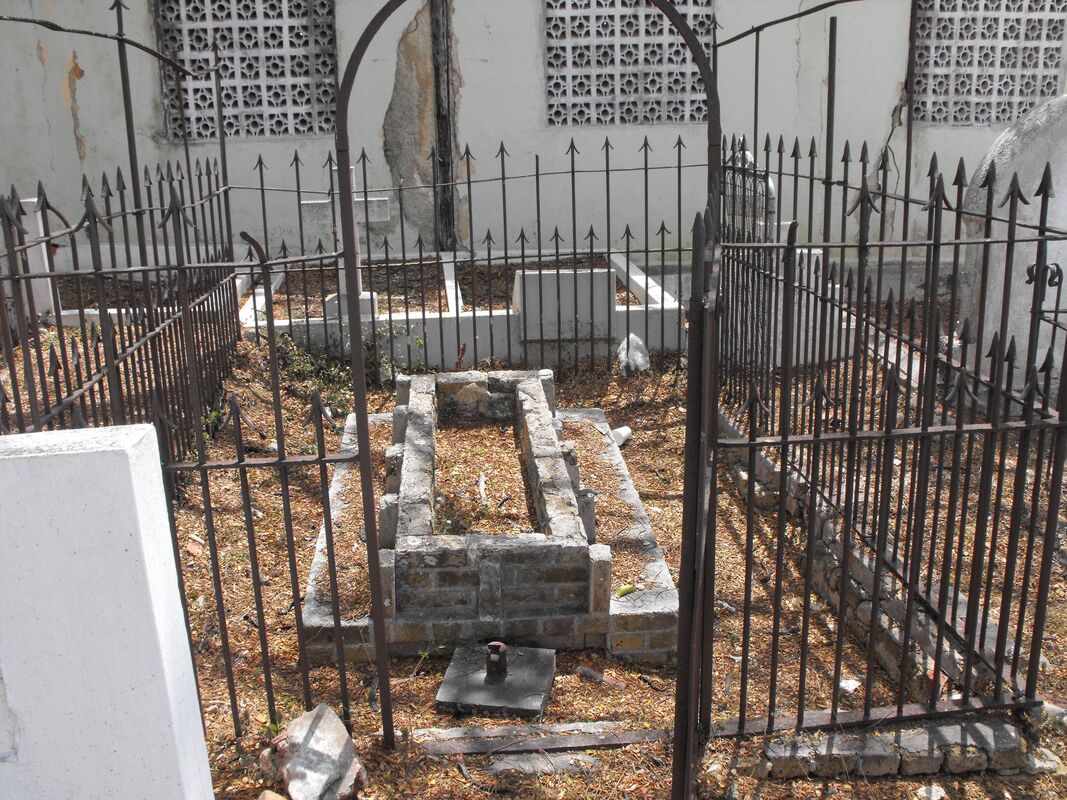
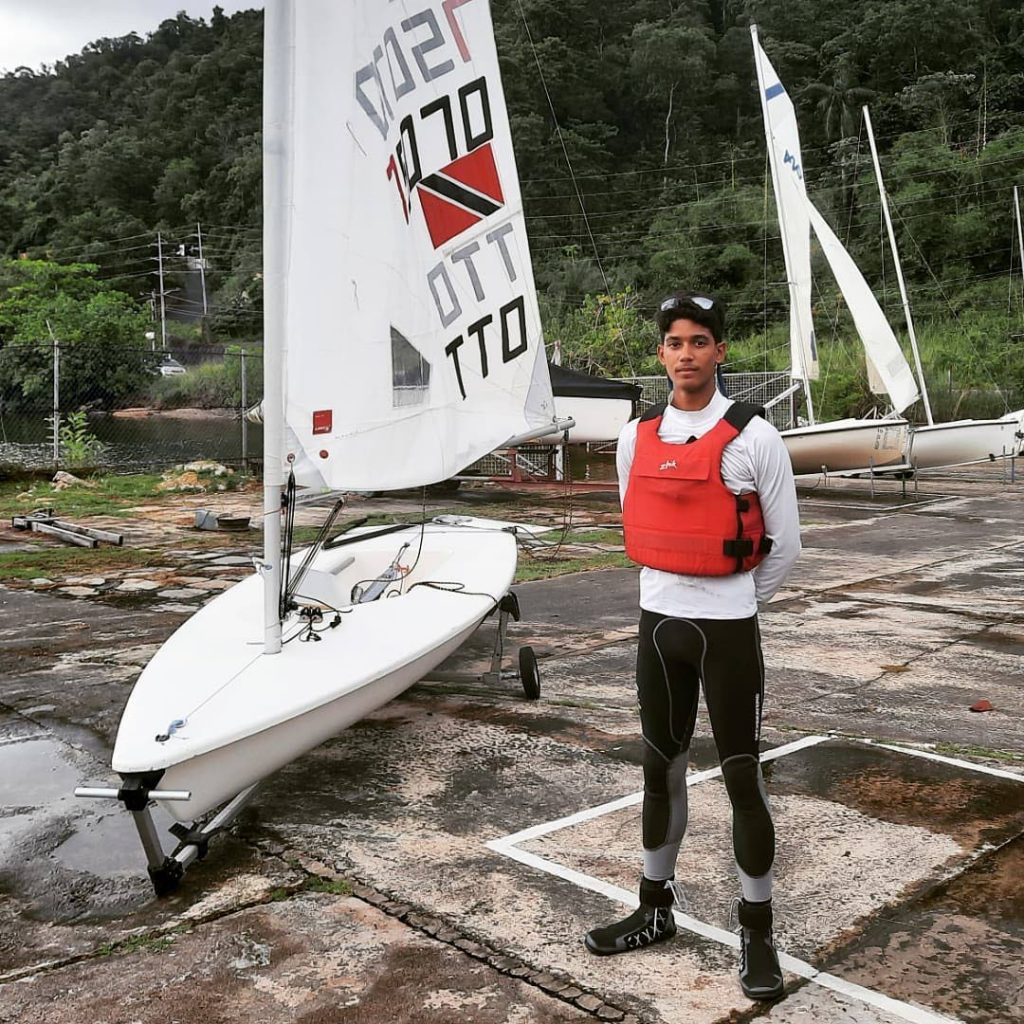
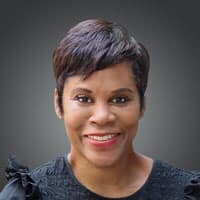
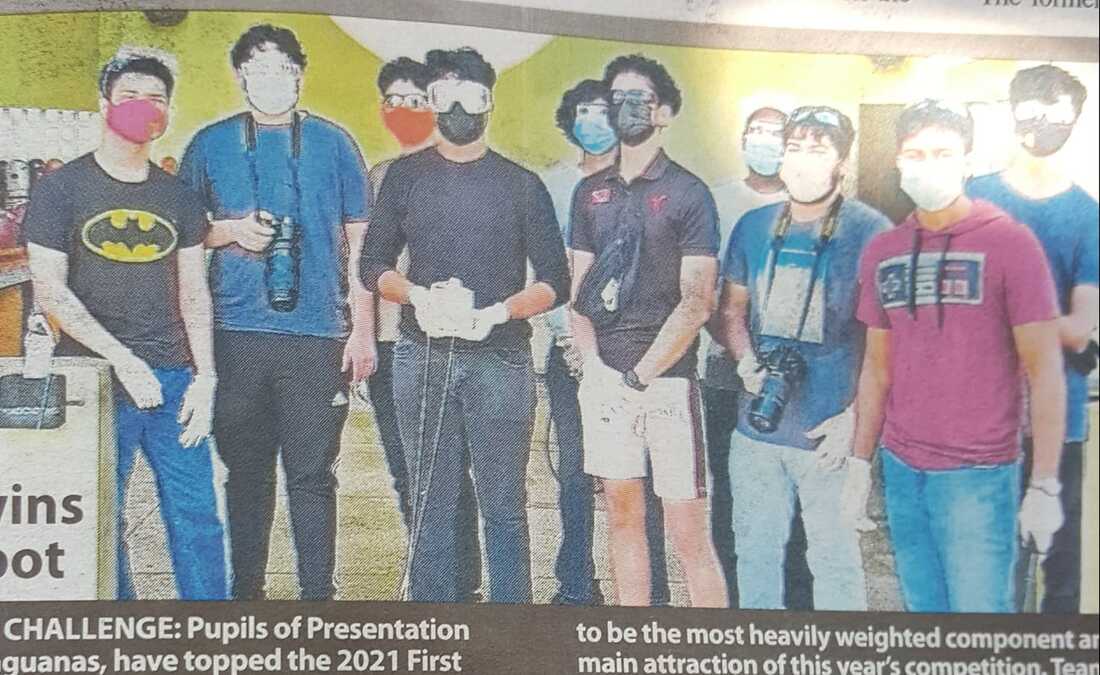


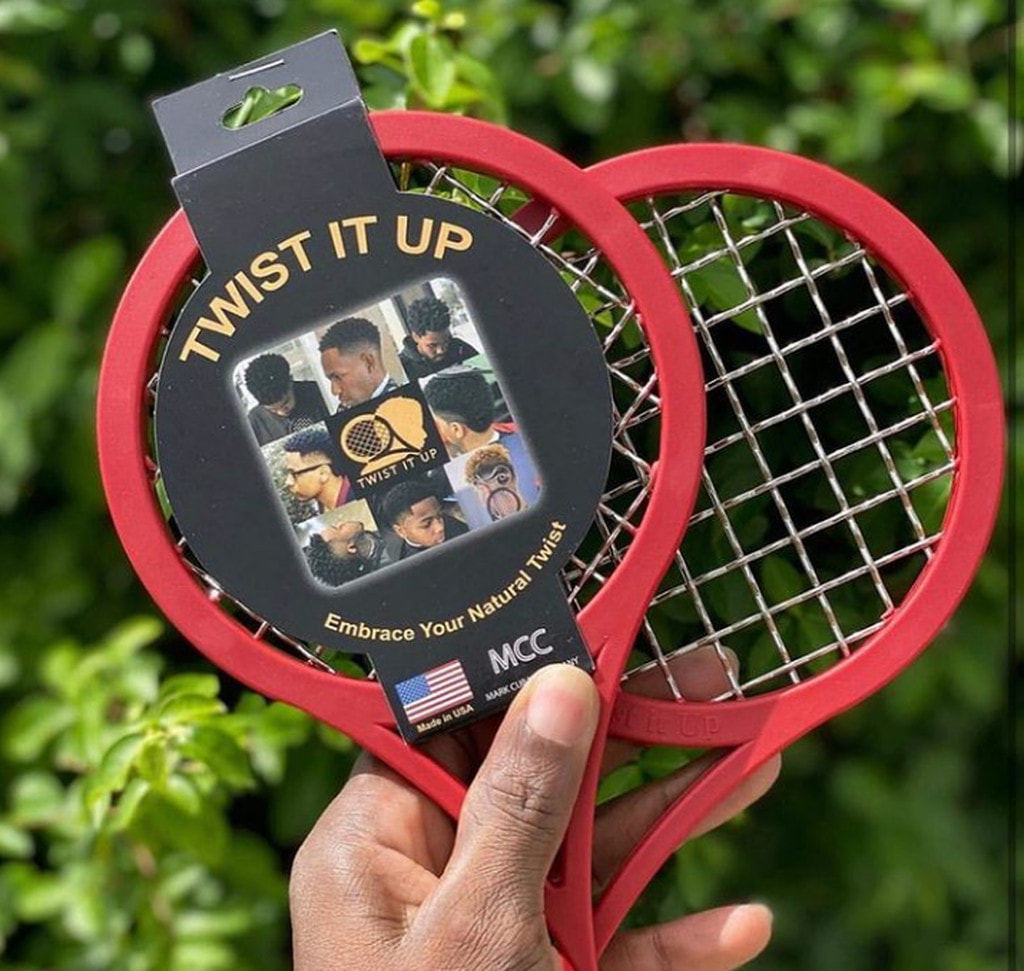


 RSS Feed
RSS Feed